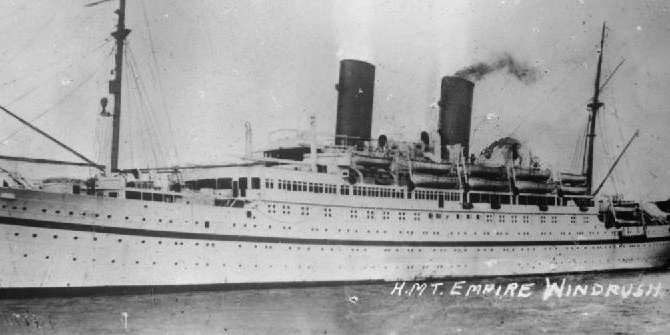 Brexit is a shock, but one which the European Union can recover from, writes Michael Cottakis. Hope rests above all in a first ‘European’ generation which has grown up experiencing the benefits of integration and membership. This group will decide the EU’s future direction, if it can overcome its frustration.
Brexit is a shock, but one which the European Union can recover from, writes Michael Cottakis. Hope rests above all in a first ‘European’ generation which has grown up experiencing the benefits of integration and membership. This group will decide the EU’s future direction, if it can overcome its frustration.

Support for the EU is highest amongst Europe’s young. This is, perhaps, unsurprising. After all, we are talking about the Erasmus or EasyJet generation of cheap travel and study abroad; the first in Europe’s history to grow up without the imminent threat of war. With a growing number of this group feeling themselves to be “European”, there are inklings amongst the youth of an emerging transnational citizenship.
Yet whilst 75% of Britons under the age of 30 voted to Remain in the EU during the recent referendum, stats show that only 40% turned up to vote. This trend is repeated in Greece, where a mere 30% of this age group voted at the last general elections; whilst Spain, Italy and France exhibit similar tendencies. These attest to an increasing disinterest and frustration amongst the European youth, deriving partly from the failure of the EU (and its member states) to contain the damaging effects of the Eurozone and refugee crises; but also from a sense of hopelessness – that their ideas are brushed aside, and their concerns ignored.
In the years since 2008, young Europeans have suffered more than most. With youth unemployment in the South hovering above 50%, and career prospects non-existent, the risk that the Millennials will become a ‘lost generation’ is a real one. Cynicism and disinterest in politics, against such a backdrop, is understandable.
However, now is not the time for disengagement. Europe faces its worst crisis since the Second World War. The once-assured liberal international consensus has been eroded, with new political battle lines being drawn. In Europe these are expressed by the tussle between Europeanists and nationalists. It is a battle that will likely define the next decade.
With young Europeans forming a central component of this first group, their efforts to stem the populist nationalist tide will be crucial. To do this, Europe’s young must turn their frustration into ambition to help build a united European space that works better for all its citizens. The 1989 Generation Initiative emerged out of this thinking. Founded in London in 2015, its aim is to ‘regenerate’ Europe through the ideas and actions of its younger citizens. Its reaction to Brexit has been to open four new branches in separate European countries.
As populist nationalism sweeps the continent, the Initiative, its partners and its friends certainly have their work cut out. But before this battle can be fought and won, leaders will need to ensure the EU’s immediate survival. In the short-term this means stemming the migration crisis and Brexit fallout. For this there will need first to come acknowledgement. Outsourcing border control to a third country – Turkey – is a questionable strategy to begin with, but particularly so when considering this country’s worsening human rights record. This should gradually be replaced. A proactive approach that deals with the source of the crisis in Syria would provide a better solution, with an emphasis on diplomacy and – in future – statebuilding.
Meanwhile a poorly managed Brexit will have wide-ranging consequences for the EU. Across the continent, anti-European forces will pounce on any perceived weakness in negotiations with the UK, and demand similar arrangements back home. With article 50 set to be triggered next month, Europe’s leaders must show strength and unity to conclude a fair deal for the UK, but also one that disincentivises other EU countries from following its lead.
In the longer term, a formal, pan-European conversation involving politicians and electorates must form the basis of a Traité Refondateur, containing a revised set of objectives and institutional competences for the EU.
With the 60th Anniversary of the Rome Treaty fast approaching, a reassessment of our common European future has never been more necessary. As tomorrow’s leaders, it is incumbent upon the first ‘European’ generation to furnish this process with intellectual dynamism and activist zeal. Eventually, this is a movement it must lead. But for it to embrace its responsibility for the future, it will first need to overcome its apathy and its frustration with the present.
This article first appeared on EUROPP – European Politics and Policy and it gives the views of the author, and not the position of LSE Brexit, nor of the London School of Economics.
Michael Cottakis is co-founder and President of the 1989 Generation Initiative.






